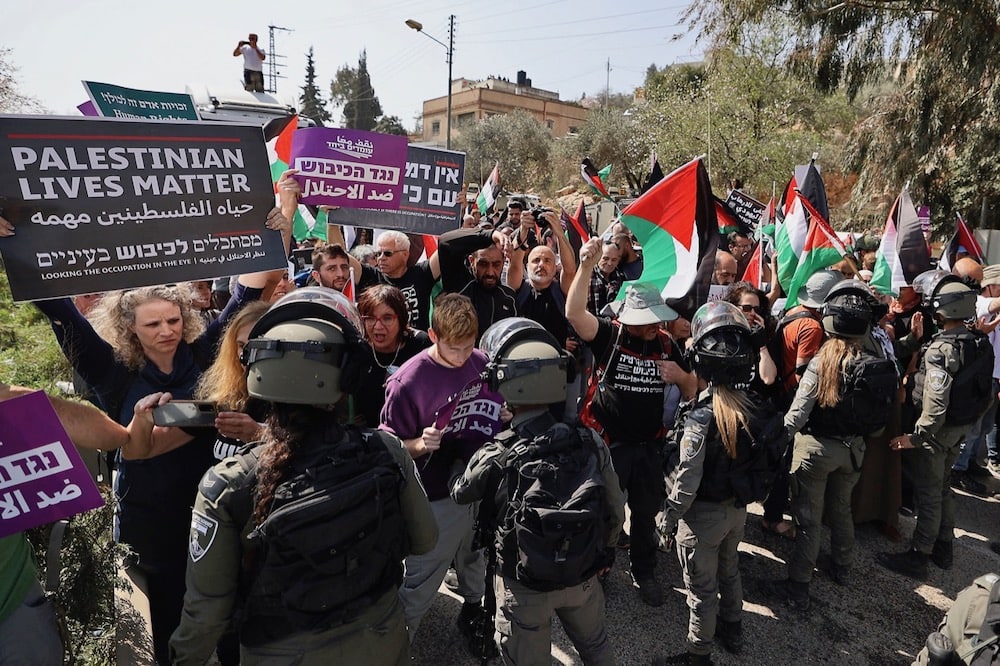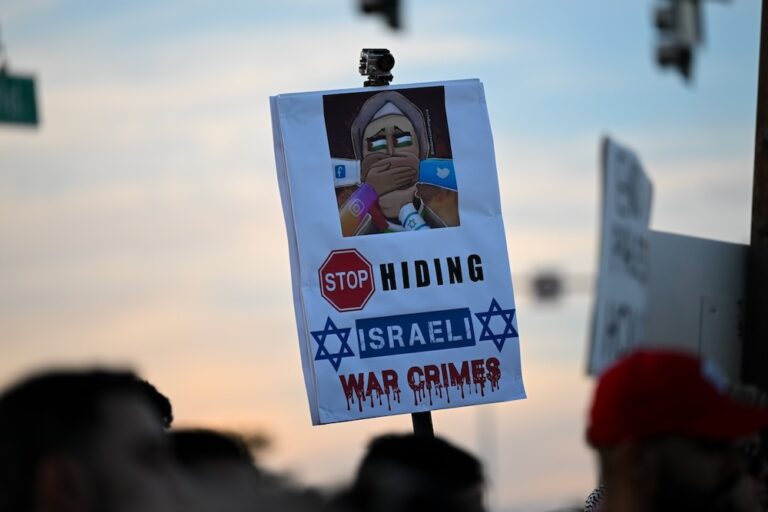Digital attacks encourage and organize attacks on the ground, reveals a new report by 7amleh.
This statement was originally published on 7amleh.org on 1 June 2023.
7amleh issued an analytical report outlining the volume, nature, and patterns of inflammatory and violent speech in Hebrew directed at the village of Huwara on Twitter between the beginning of the year and the end of March, which contributed to the implementation of a number of attacks by settlers on the villagers and their properties and causing harm to them, which reached its climax on the night of the twenty-seventh of February.
The Arab Center for the Advancement of Social Media issued an analytical report outlining the volume, nature, and patterns of inflammatory and violent speech in Hebrew directed at the village of Huwara on Twitter between the beginning of the year and the end of March, which contributed to the implementation of a number of attacks by settlers on the villagers and their properties and causing harm to them, which reached its climax on the night of the twenty-seventh of February.
At a time when settler attacks on Palestinian cities intensified during the first months of 2023, violence and incitement published through digital space and social media platforms, supported by Israeli ministers and officials, specifically via the Twitter platform, also increased, which had repercussions on residents and their property and led to many deaths. Sometimes it leads to material and physical damage, as well.
7amleh monitored and documented in this report a total of (15,250) tweets published in Hebrew during the first three months of the year, which contained the hashtags: Huwara (#חווארה) and the hashtag Wipe out Huwara (#למחוק_את_חווארה). Its content, the accounts it publishes, and the nature of the inflammatory vocabulary used were analyzed by employing a sentiment analysis algorithm to come up with a perception of Israeli incitement to violence against Palestinians in the digital space, and its relationship to violence on the ground.
The report indicated that 80.2% of all (15,250) tweets about Hawara included negative content against the village and its residents via the Hebrew-language digital space. The intensity of incitement and hate speech increased on the eve of the settler attack on the village of Huwara on the night of February 27, and from the day of the attack until the end of March, when an average of (188) negative tweets were published daily against the village of Huwara, published by approximately (158) accounts. on the Twitter platform.
It states that digital attacks not only aim to erase the Palestinian digital presence but also encourage and organize attacks on the ground. The reason for the spread of this phenomenon is due to the absence of policies for managing content published in Hebrew on social media platforms, as technology companies do not implement their policies fairly when managing content published in Hebrew in the Palestinian political context or/and are biased in favor of incitement content published in Hebrew, as they are not dealing with inflammatory content strictly across the digital space.
The report recommends that decisive measures should be taken by social media companies to prevent the spread of incitement, racism, and violence against Arabs and Palestinians through various platforms. Also, they are urged to develop a lexicon of hate speech in Hebrew and use it to monitor this type of content, implement content management policies as required on Israeli content in Hebrew, and stop the policy of discriminatory double standards with regard to Palestinian and Israeli content on social media platforms.
Finally, this report comes within the ongoing work of 7amleh in combating incitement and Israeli hate speech directed against Arabs and Palestinians through the digital space and calling on social media companies to stand up to their responsibilities in finding and implementing policies that guarantee to confront such speech.
Check out the full report: Click here



